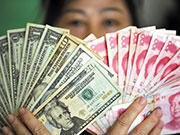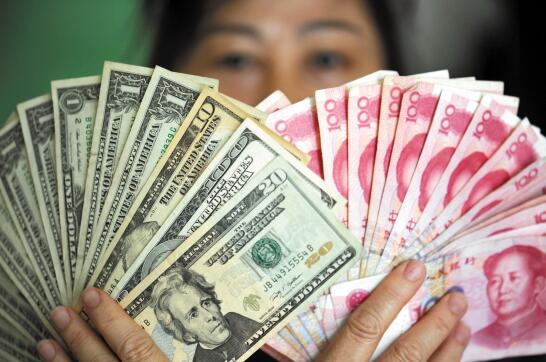Chinese exporters see both Yuan's gains and losses

 0 Comment(s)
0 Comment(s) Print
Print E-mail CNTV, December 8, 2016
E-mail CNTV, December 8, 2016
The Chinese yuan recently fell to its lowest level since 2008. However, a weak currency could benefit Chinese exporters, which are struggling to retain overseas orders in other developing countries.
 |
|
Chinese exporters see both Yuan's gains and losses [Photo/Xinhua] |
Yin Shuping runs a lamp factory in Dongguan that has annual sales of $15 million. All the lights and lamps made here will go directly to the US. Yin says he's happy with the recent devaluation of the yuan.
"This is good for us, though in the short term, there will be no obvious effect because most of our orders were made half a year ago. I expect, within a year and a half, the effect of the devaluation will gradually be seen, and bring more orders or more profit margins," Yin said.
Yin said that his business suffered in the past several years due to the strong yuan against the US dollar and was losing orders to factories in India and Vietnam.
Still, Yin said the strong dollar could also neutralize the benefits of the weak yuan.
"On the other hand, the downward RMB against the US dollar greatly increases international commodity prices -- like the price of paper pulp has gone up 40 percent in the past months. It’s a great burden for many factories using imported materials," Yin said.
Analysts say that for Chinese manufacturers targeting overseas markets, the devaluation of the yuan is a good sign for business in 2017 but still not enough. Weak demand in international markets will be the key issue.
"The devaluation of the renminbi is a lasting process which is expected to continue for months. So foreign buyers may take a wait-and-see attitude before making orders. Plus, the exchange rate is only one factor in foreign trade. The whole situation still depends on global economy recovery," Li Tianzhi, managing director of Hitouch Consulting, said.
After leaving Dongguan, we went to Guangzhou, the largest commercial hub for traders from the Middle East and Africa in China.
We discussed the yuan with Ali Qanbar, general manager of Iraqi Airways in China, which flies about 1,000 Iraqi businessmen to China every month.
"They say they are very happy about the current exchange rates….for our businessmen, they wish the RMB could drop more," Ali said.
Ali said his airline has been encouraged by improvements in Iraq and the RMB's downward trend. He said the airline hopes to add more flights between Iraq and China in 2017.



 Add your comments...
Add your comments...

